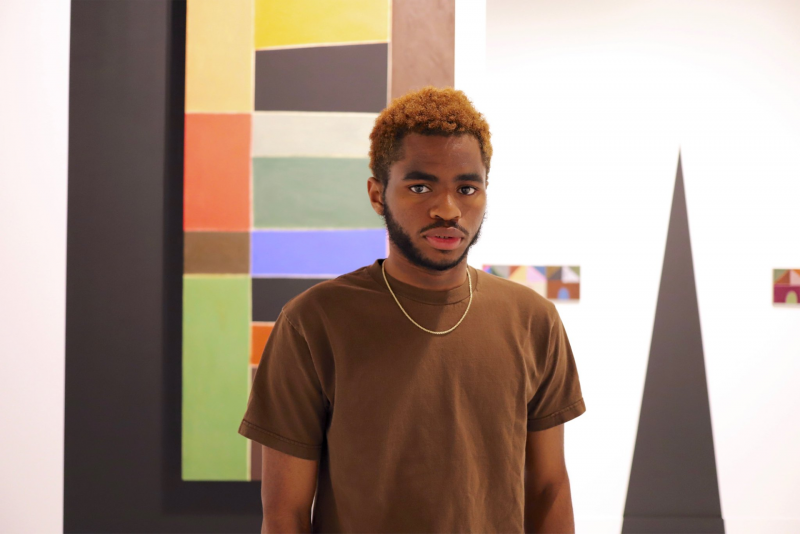In 2020, Ovrkast. released his anticipated debut album, Try Again. Then the pandemic hit. Still, he’s been able to accumulate over 18,000 followers on social media and has topped a million streams on Spotify.
Though the ongoing pandemic has significantly reduced his ability to tour and organically collaborate with new artists, Ovrkast. has used the detour as a way to cultivate personal and creative growth.
“When I dropped Try Again and the pandemic happened, it was kind of a blessing because people were forced to sit down with it and actually listen,” he says. “That was basically me coming to understand that art is a real process and I need to be patient. It’s not just lyrical or instrumental. It’s about the whole human experience. I’m still growing and changing as a young adult, and this album is a reflection of that.”
Rather than being discouraged by quarantine, the emerging artist found motivation to engage with his craft in new ways. Within a year, he put out multiple drum kits (which are basically collections of sounds for music producers) and beat tapes (most recently Early Autumn School Clothes, which he initially distributed via USB stick). Then he delivered 2021’s Try Again (Deluxe), one of last year’s best rap contributions.
The original version of Try Again is a certified head-nodder, and the deluxe package includes “Love Somebody,” a standout addition that gives a heartwarming ode to his newborn nephew. The revamped album also adds a throwback-style extension to the end of “Outro (It’s Time)”—implementing a “hidden-track” method that extends the song by an extra 90 seconds of empty noise before transitioning into the three bonus songs.
On both versions of the project, his raps drift along like dreamy hues floating over muffled instrumentals, evoking an impromptu jazz session. The gentle production intentionally omits any of the rattling bass or aggressive punchlines that many East Oakland rappers are famous for. The result is an elegantly curated and textured portrait of a young artist who is capable of giving listeners “2 Minute Bars” of rhythm-assisted poetry and personal musings.
“I would just listen to everything and mimic whatever I could discover,” Ovrkast. says of his younger days. “After school, I’d be making beats everyday. Once I heard the results, people liked it and I started grinding out. Some of my friends came by and we started rapping as a group called Kinfolk. That was my first roots on the microphone.”
He lists Knxwledge., Odd Future, Capital Steez, Flying Lotus and mixtape sites like DatPiff as early influences. But he doesn’t force himself into any category, either. It’s precisely this degree of alternative mindset, weirdness and vulnerability that draws me—and his sizable group of listeners—back for more.
Ovrkast. exudes a refreshing sense of humility and unguarded authenticity with lines like “[I] love keeping quiet ’til I throw a beat to it” on “Uck” or “All praise to the shit I don’t know, different ages / Tryna learn this shit is how it goes, flippin’ pages” on “AllPraise.” In a time when social media-fueled narcissism dominates our screens, Ovrkast. stands out as a free-spirited wanderer driven by quiet, internal contemplation—something he says originated from his youth and is reflected in his stage name.
“I always loved rain and Oakland hoodie weather,” he says. “When it was raining I could just be inside, drawing, looking up music. That’s where the idea of Ovrkast. came from. I cherish that feeling. That combination of rain, music and calmness all go together. It helped me with my anxiety.”



